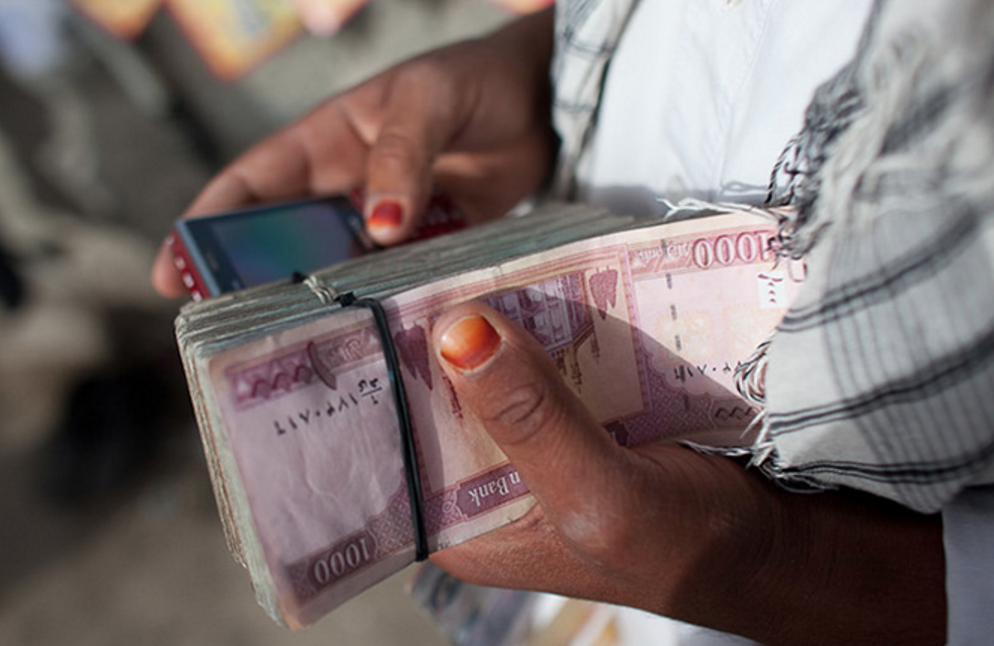Numerous studies have shown that the benefits of financial inclusion are indisputable. Financial inclusion (also called inclusive financing) aims to provide financial services at low costs to sections of disadvantaged and low-income segments of society, which might not even be part of the banking system.
The term ‘financial inclusion’ first emerged as a named policy in 1997, and since then, the interest in the topic has grown, as being key to eliminating extreme poverty.
In fact, the G20 countries have recognized that financial inclusion is one of the key global development pillars that will help reduce poverty and boost global prosperity. This has led to policymakers paying more attention to policies that can help to expand financial inclusion.
For example, the World Bank has committed to establishing a financial infrastructure that will provide universal access to basic financial services by 2020 through its Universal Financial Access 2020 (UFA2020) initiative.
The UFA goal is that by 2020, adults, who currently aren’t part of the formal financial system, will have access to a transaction account to store money, send and receive payments as the basic building block to manage their financial lives.
The World Bank Group (composed of the World Bank and IFC) has pledged to promote the financial inclusion of 1 billion people through targeted interventions. 30 partners have pledged commitments toward achieving universal financial access. Inspired by the UFA 2020 initiative, more than 60 different countries have initiated their own reforms to expand financial inclusion since 2011.
In the April 2016 consultative report on Payment Aspects of Financial Inclusion by the Committee on Payments and Market Infrastructures and the World Bank Group, several actions have been suggested which governments and the private sectors can take to improve access to transaction accounts. By implementing the suggestions in the report, governments can help bring financial inclusion one step closer to the unbanked.
The suggested actions include initiatives in the following areas:
Area 1: Commitments from the Public and Private sector
• Support access to at least one transaction account
• Allocation of resources for financial inclusion efforts
• Coordinate policies for the expansion of financial inclusion
• Active engagement between public and private sector on initiatives for promoting financial inclusion
• Meaningful cooperation between public and private sector on addressing solutions for the payment industry as a whole
• Central banks to foster safety and efficiency of payment systems
Area 2: Effective and Conducive Regulatory Framework
• Framing a robust regulatory framework to oversee the operations of the payment services providers
• Requiring payment service providers risk management practices commensurating to the nature of their activities.
• Framework that aims to promote the use of transaction accounts as well as adequately protecting customer funds
• A Framework that promotes transparency of services and products provided by the payment services providers
• Framework that promotes competition as well as addresses the trust issue which some customers have with traditional payment services providers
• Framework that promotes market innovation while preserving the integrity of the financial system
Area 3: Efficient and Robust Financial and ICT infrastructures
• Upgrade or build the required infrastructures to facilitate usage of transaction accounts
• Having additional infrastructures that effectively support financial inclusion initiatives
• Extend geographical coverage of the necessary infrastructures to reduce the barrier of providing a transaction account in remote areas
• Increase interoperability to payment infrastructures
• Ensuring the payment infrastructures are resilient against fraud
Area 4: Designing Transaction account to meet the target population needs
• Provide a basic transaction account with little or no cost to customers
• At the minimum offer a transaction account that is able to receive and make electronic payments
• Adopt creative and efficient methods to enable transaction accounts to be offered in a commercially viable manner
• Engage in market research to design products and services which meets the needs of the target group
Area 5: Readily Available Access Points
• Provide convenient and effective access point though physical access points or remote access channels
• Ensure interoperability between access points and access channels within the payment industry to expand the reach to the holders of the transaction accounts
• Payments services providers to ensure their staffs are adequately trained to understand and handle the cultural, religious and gender diversity of the target group
Area 6: Improving Awareness and Financial Literacy
• Coordination between public and private sector in providing effective educational outreach program that supports financial literacy
• Having financial literacy programs to specifically deal with how transaction accounts can be used as a store of value as well as serving payment needs
• Educate target group on the various types of financial products that are available to serve their needs
• Educate target group on how to maximize potential benefits and minimize risks and cost of the available services
• Provide hands-on training as part of a product rollout to users with limited exposure technologies and electronic payment systems
Area 7: Recurring and Large Volume Payments
• Where large volume payments are involved, payments services providers should take into considerations the specific needs of their customers
• Encourage the use transaction accounts to make large volume or recurrent payments in order to increase the usefulness of the transaction account to their holders
• Encourage the disbursement of salaries through the employees’ transaction accounts
Powered by Humaniq

IntelligentHQ Your New Business Network.
IntelligentHQ is a Business network and an expert source for finance, capital markets and intelligence for thousands of global business professionals, startups, and companies.
We exist at the point of intersection between technology, social media, finance and innovation.
IntelligentHQ leverages innovation and scale of social digital technology, analytics, news and distribution to create an unparalleled, full digital medium and social business network spectrum.
IntelligentHQ is working hard, to become a trusted, and indispensable source of business news and analytics, within financial services and its associated supply chains and ecosystems.












